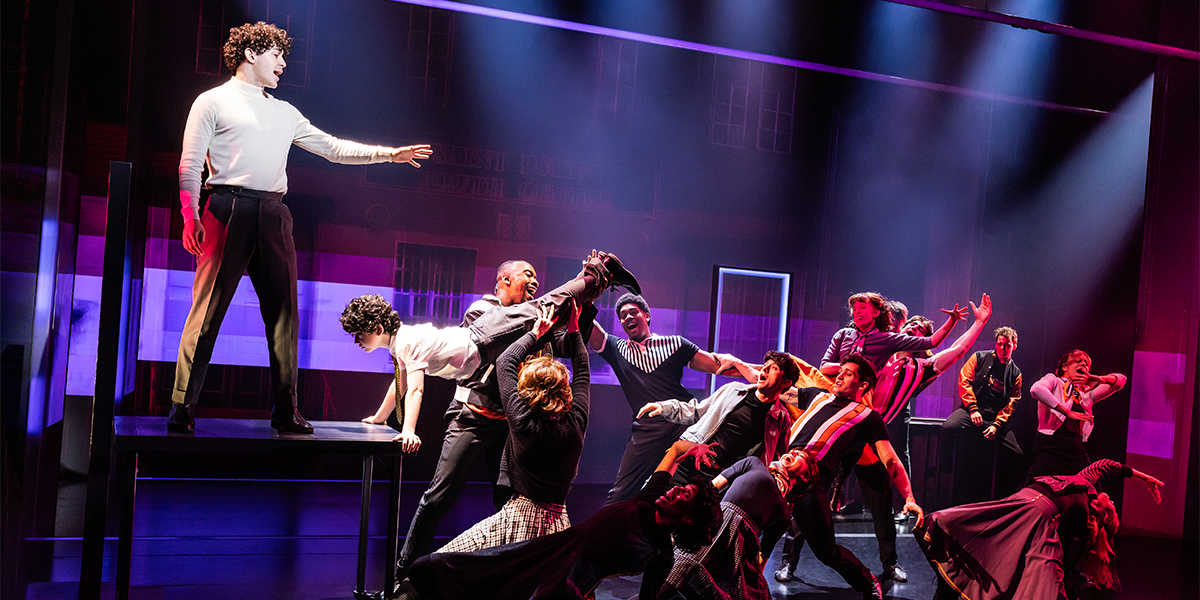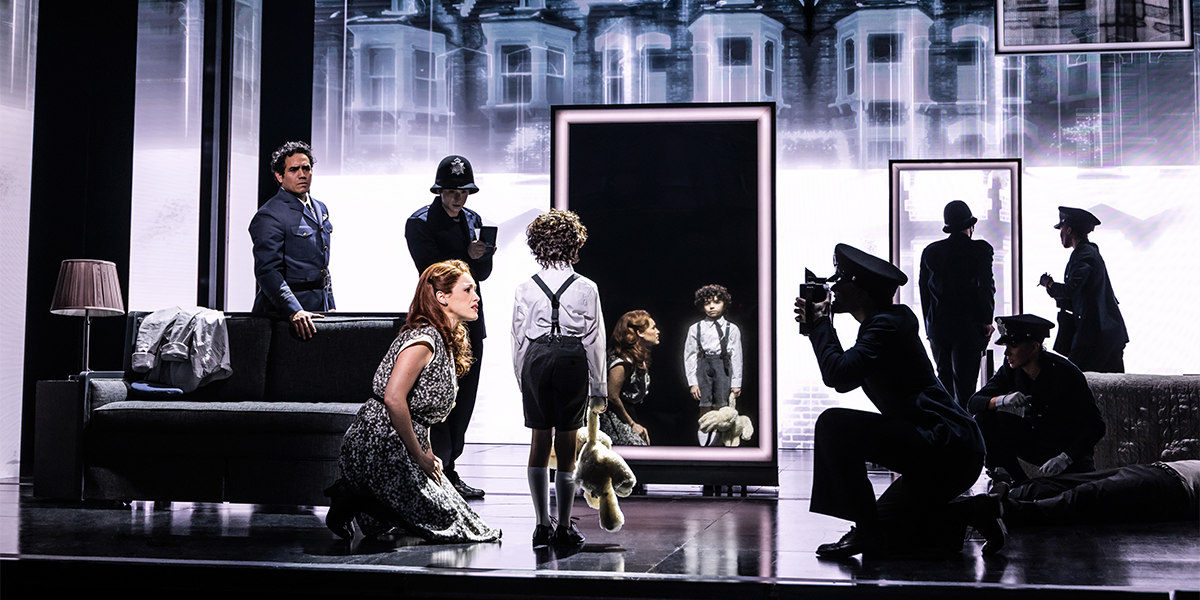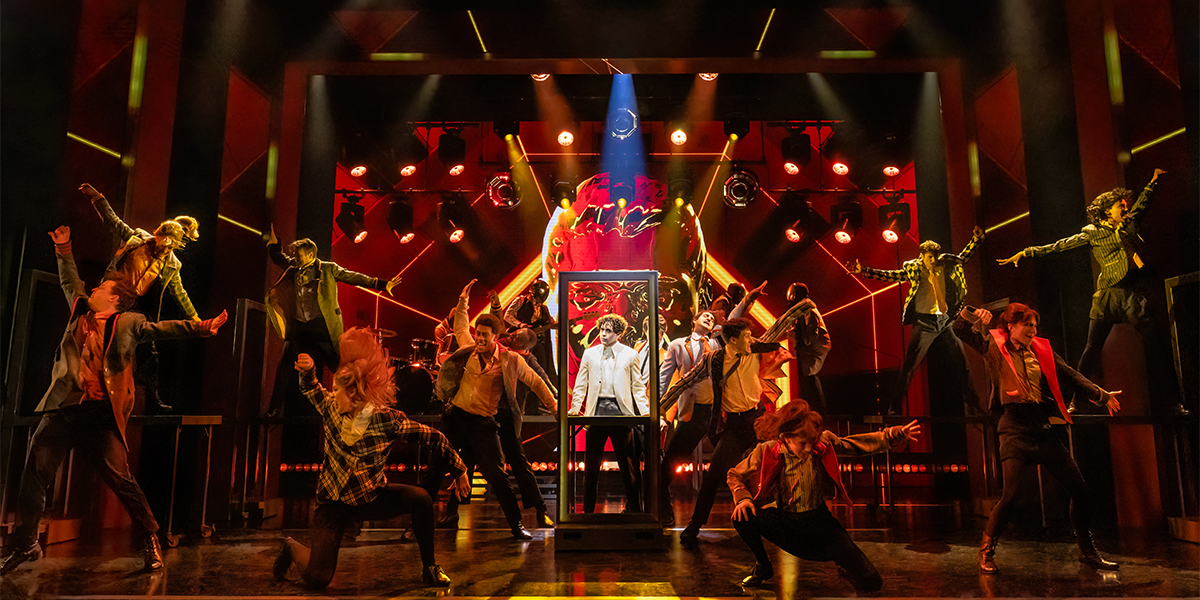'The Who's Tommy' returns to Broadway after 30 years, resonant as ever
Co-writer and director Des McAnuff, who also staged the show's 1993 premiere, shares how the musical evolved and why it is built to reach all generations.
In 1989, L. A. Times theatre critic Dan Sullivan reviewed a 20th-anniversary concert for Tommy, the landmark rock opera by The Who. The album that propelled the British rock band to global success, Tommy musicalizes the story of a traumatized young boy-turned-pinball star-turned-reluctant spiritual leader.
Guests like Elton John and Patti LaBelle sang supporting roles alongside The Who at the concert. It was a quasi-theatrical event, leading Sullivan to observe: "Oddly, 'Tommy' has never had a first-class Broadway-budget musical staging."
Enter Des McAnuff, who would co-write and direct the Broadway musical adaptation of Tommy 5 years later. Sullivan's article motivated him to do it.
As McAnuff remembers it, "[Sullivan] said, 'We could never do anything like this in the theatre. We could never compete with The Who,'" the director told me. "I said to my assistant, 'He's absolutely wrong [...] We could blow the roof off the stage house with this material.'"
"Very arrogant, but confident too, I guess," he added with a laugh. In retrospect, he had the right to be. He's now returning to direct The Who's Tommy's first Broadway revival at the Nederlander Theatre, just over 30 years after the original production won five Tony Awards and (as McAnuff also humbly acknowledged) shaped much more musical theatre to come.
How did that happen, and why bring Tommy back now? To quote a lyric from the show, "Come on the amazing journey and learn all you should know."
The birth of The Who's Tommy
Like many of his generation, McAnuff remembers experiencing the Tommy album when it came out in 1969, alongside the members of the band he was in at the time.
"It had a huge impression on me," McAnuff said. "Some of what's in the production probably comes from that very first listening — [...] the imagery and even some story elements."
Fast-forward 20 years, and he was the artistic director of the La Jolla Playhouse in California, a major launchpad for future Broadway hits. He had the power to make a proper Tommy musical happen, with the help of producers who connected him to funding and to Pete Townshend, The Who's co-founder and main songwriter.
His first one-on-one meeting with McAnuff was meant to last 30 minutes. It lasted 4 hours, and McAnuff co-wrote the script to accompany Townshend's songs soon after.
"We got on like a house on fire, and we've been close friends ever since," McAnuff said.

Tommy's a sensation
The Who's Tommy's Broadway premiere ran for just over two years, concurrently touring the U.S. and later becoming a fixture of theatres across the country. Its influence lingered — and still does.
McAnuff said other theatremakers told him how impactful that Broadway production was. "We used technology in new ways. There was a new kind of storytelling [...] Everything we use is electric music; before Tommy, there wasn't much of that.”
The Tommy album and musical were also groundbreaking thematically. The titular Tommy Walker witnesses a murder, loses his senses, is subjected to abuse as his parents search for a cure, and must find his own path out of his mind and into true healing. Put simply, Tommy dealt head-on with trauma and mental health as few, if any, mainstream songs or musicals had respectively done before.
Twenty-first-century musicals like Next to Normal (2008) and Jagged Little Pill (2019) are evidence that "the conversation about trauma and abuse has evolved, at least in most circles, to a significant degree since the early ’90s," McAnuff said.
They're still evolving, which is one reason McAnuff wanted to revisit Tommy. He and Townshend had that same thought in 2013, when they mounted a 20th-anniversary production in Stratford, Ontario, Canada. McAnuff described the production as a "valentine" to the original, but it also sparked a desire to make it new.
"The world has finally caught up to Tommy Walker," McAnuff said then — and continues to say now. Echoed current cast member Bobby Conte: "We've all gone through our own individual versions of trauma over the last 3-4 years. The show is about healing and giving the audience catharsis [...] Broadway always has a place for that, but certainly now."

See me, feel me — again
The revival contains almost all the same songs from the album and original run, and the script remains virtually unchanged. "The production is profoundly different from the original, but the story and the libretto — I wouldn't be futzing around with this any more than I would with Verdi," McAnuff said. "It's a classic. It's not so much the piece that's changed. It's the world."
For example, the world didn't have LED lights in 1993, which scenic designer David Korins makes plenty use of in his slick, abstract set for the revival. The world also didn't have smartphones. The mirror — an object that's key to Tommy's self-actualization — can now be seen as a metaphor for those: "Everybody seems to be trying to escape a hostile universe by looking in a mirror," said McAnuff.
And Tommy's rapid rise to fame as a "pinball wizard" and enlightened mind, which earns him an almost cult-like following, may bring real-life leaders to mind: "You don't see very many of them saying, 'This is too dangerous. You've grown too in love with me,'" McAnuff said. "But Tommy does, and that's a great moment in the play — maybe in some ways my favorite moment."
Aesthetically, McAnuff doesn't specifically set the Tommy revival either in the 2020s or the 1940s, when the plot begins as written, yet the show can't help but meet the moment.
Nonetheless, McAnuff wasn't sure how people would respond when he and Townshend presented their revamped Tommy in Chicago in summer 2023. "I had two huge fears: One is that I wouldn't change it enough, and the other one was that I’d change it too much," McAnuff said. But the revival got rave reviews, securing its spot on Broadway.

The amazing journey continues
Within the past 30 years, Ali Louis Bourzgui, who stars in the current Broadway revival as Tommy, discovered the Tommy album in college. His co-stars Conte (Cousin Kevin) and Christina Sajous (The Acid Queen) performed in productions of The Who's Tommy across America. Alison Luff and Adam Jacobs, who play Tommy’s parents, became real-life parents — Luff was pregnant with her first child during the Chicago run, and Jacobs’s twins are currently 10, the same age as Tommy in the show’s first half.
None of them were born when the original album came out. But they all described the show to me as "timeless," showing how Tommy continues to touch new generations.
Of course, young people have always been fundamental to Tommy and its success. Townshend composed the original album when he was 23. Bourzgui, who earned acclaim in Chicago for his performance as Tommy, is 24. Like Townshend and his generation of '60s rockers, today's Generation Z is known for being vocal about issues including war, identity, and mental health. Reaching them was McAnuff and Townshend's "unspoken motivation" for this revival, the director said.
"There was this vitality to the audience that I'm not sure we even had the first time," McAnuff said of the Chicago run. "And we certainly had a young audience [in 1993] — I remember standing on 44th Street, and you'd look across the street at [The] Phantom [of the Opera], and it looked like the children of the people in line at Phantom were lining up for Tommy."
McAnuff went on to say that "when young people come to hear this, it's theirs." That's true time and time again, too. I will be attending the show alongside my dad, who once experienced Tommy for the first time as a young person, when it became his.
He may be attending this revival for the nostalgia, but The Who's Tommy will become his all over again as it also becomes mine. Perhaps that will be us, today's new audiences, in another 30 years.
Photo credit: The Who's Tommy on Broadway. (Photos by Matthew Murphy and Evan Zimmerman)
Originally published on
